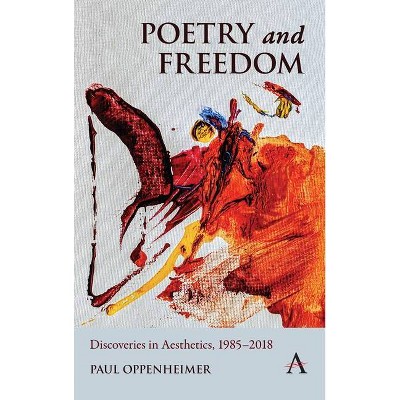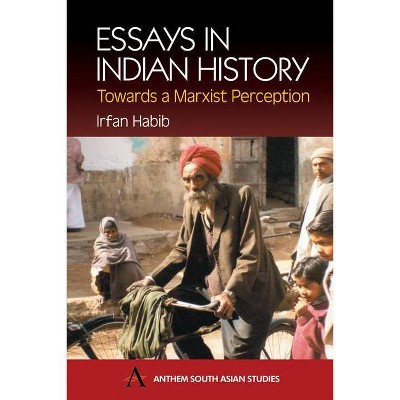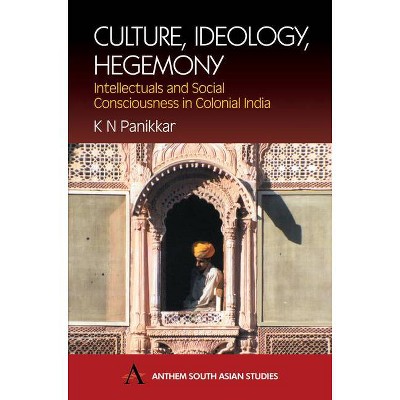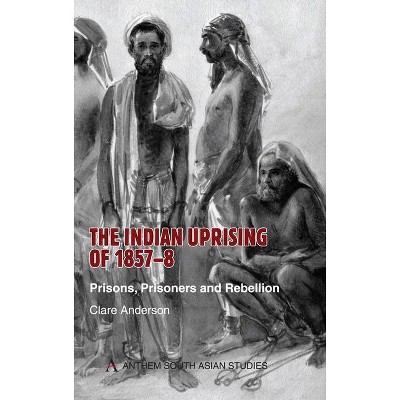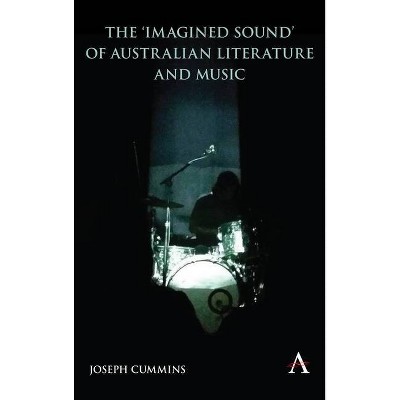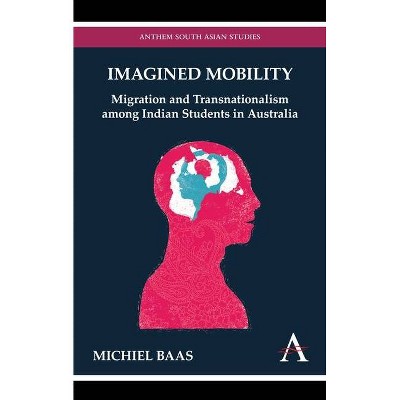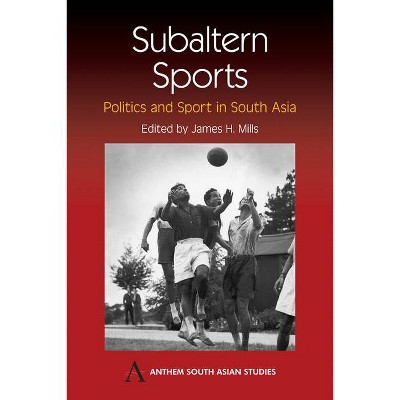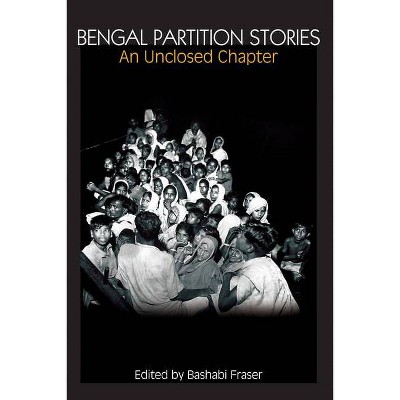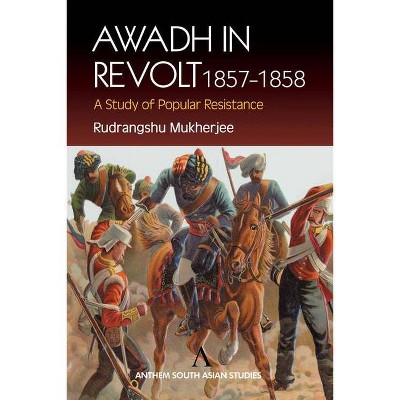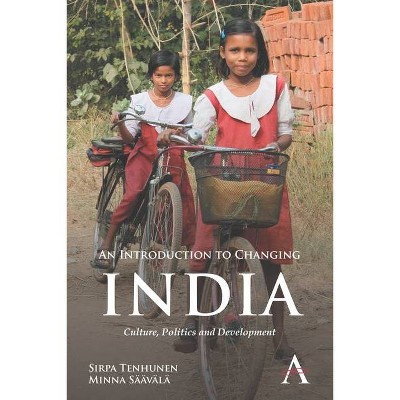The Vanishing Indian Upper Class - (Anthem Studies in South Asian Literature, Aesthetics and Culture) by Terry Williams & Raza Mohammed Khan
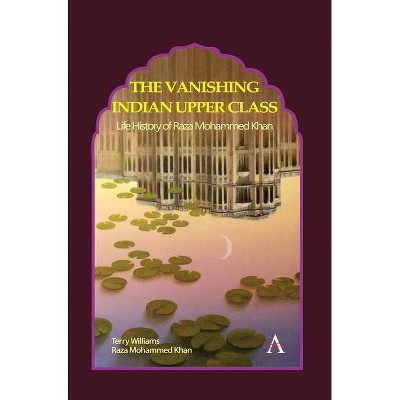
Similar Products
Products of same category from the store
AllProduct info
<p/><br></br><p><b> About the Book </b></p></br></br>The Vanishing Indian Upper Class is based on a life-narrative [true-life story] and contains various elements of history, politics, religion, literature and poetry.<p/><br></br><p><b> Book Synopsis </b></p></br></br><p><em>The Vanishing Indian Upper Class</em> is a story necessary to the life, the times and the action as told and provides a basic narrative tension by what I refer to as an ethnographic excavation, because it begins to answer the basic question of how the story extend beyond the life history of one person. Sociologist Howard Becker considering the situation of the life history document in sociology stressed the "importance of presenting the actors subjective situation of the person's experiences and on "giving context in which he undergoes his social experiences." Becker recognized life history data as an important source for theory and a "means of testing concepts." In this way life history data seen as material offering basic evidence about social interaction and process because it "offers a vivid telling of what it means to be a certain kind of person."</p> <p> This book concerns issues of gender, the role of women, inheritance, male privilege, ruling elites, marriage, the caste system, poverty, greed and familial betrayal.The idea of betrayal-one of the central tenets of the human condition-is much on display in this text. At the core of the book is a fundamental question: to what extent does the chicanery involving a family inheritance tell a much larger story about modern Indian culture from the perspective of an Indian Muslim and the nation as a whole. </p> <p> The story is about the family of Raza Muhammad Khan and its legacy of honor, compassion, love, sacrifice, betrayal and dividing up land. This is an engaging family history intertwined with the story of one person's life and memories. As interlocutor I know a true-life history involves more than conversations and the material here provides other forms of personal documentations: letters, e-mails, photographs, illustrations, notes, poems, stories and accounts written by different family members, limited life histories, autobiographical accounts, and court records all as a source of knowledge. Oscar Lewis related similar sentiments when he wrote about The<em> Sanchez Family</em> in Mexico and sociologists William Thomas and Florian Znaniecki's did the same in The <em>Polish Peasant in Europe and America. </em></p> <p>The most important early life history documents in sociology William Thomas and Florian Znaniecski. (1918). <em>The Polish Peasant in Europe and America. University of Chicago, </em>which was part of the early Chicago School tradition. Psychologist Gordon Allport argued that of the three main forms of life history writing: the comprehensive; the topical; the edited, with the former being the most difficult to pull off. And there are many studies of significance purported to be life histories. Clifford Shaw. (1930). The <em>Jack Roller. </em>University of Chicago Press; Edwin Sutherland. (1937) <em>The Professional Thief</em>. University of Chicago Press; The best life histories in the social science tradition; Oscar Lewis. (1963) <em>The Sanchez Family</em>. Vintage Books; Theodore Rosengarten. (1974) <em>All God's Dangers: The Life of Nate Shaw</em>. University of Chicago Press; Sidney Mintz. (1974) <em>Cane Worker: The Life of a Puerto Rican</em>. W.W. Norton Company; Leo Simmons. (1970) <em>Sun Chief: The Autobiography of a Hopi Indian</em>. Yale University Press.</p><p/><br></br><p><b> Review Quotes </b></p></br></br><br><p>"As India shudders and splits apart, this enthralling ethnography traces one royal family's story as it loses its place in the old social order, disperses to Baghdad, Karachi and London, and struggles to maintain family ties and traditions even as it adapts to the new world." -- Anwar Shaikh, Professor of Economics, New School for Social Research</p><br><br><p>Terry Williams is one of the most original and imaginative sociologists, anywhere. Each of his many works is different from the previous, in content, method as well as implicit argument. What ties them together is that each is both a search for truth as well as a methodological experiment. He calls The Vanishing Indian Upper Class: The Life History of Raza Mohammed Khan an ethnographic excavation. It is that but also much more. The work reconstructs the life of a prince in exile, Raza Mohammed Khan, as a mirror simultaneously of the Indian aristocracy, the society of which it was once a significant part, the life of exile, as well as stormy family relations that resemble "unhappy families" elsewhere, in spite of Tolstoy's dictum. The stories are told by both Khan and Williams, two master raconteurs, and thus very generously both are included as the authors. But the experiment is designed by Williams, who wants it to be a test of ethnography itself. Can a man originally from the Mississippi of the Jim Crow era, understand the lifeworld of an Indian prince? The book shows that he can, that totally different horizons of experience can after all be fused. For the reader, the work promises many repeats of the very same fundamentally human experience. -- Andrew Arato, Dorothy Hirshon Professor in Political and Social Theory, New School for Social Research</p><br><br><p>The Vanishing Indian Upper Class: The Life History of Raza Mohammed Khan: This masterful work brings together a leading American sociologist and an Indian elite. The result is a powerful narrative and thoughtful reflections on modern India with gripping insights on gender, family, the ruling class, religion, the caste system, poverty, greed and power. Its life history approach makes The Vanishing Indian Upper Class an exemplary read, weaving together the everyday tapestry of a Muslim aristocrat, his household, which then merge into the very structural fabric of India herself, a modern democracy built upon the sheaf of a vibrant civilization. Terry Williams is one of the leading ethnographers of our time and his ability to narrate the depth of the human condition gives us a work that is searing, elucidating, and sobering. Raza Mohammed Khan, a prominent member of the upper-class in India, affords us the right of passage to make this possible. In the end, readers come away with a journey well worth the trip. -- Zain Abdullah, author of Black Mecca: The African Muslims of Harlem and associate professor of Religion and Society and Islamic Studies, Temple University.</p><br>
Price History
Price Archive shows prices from various stores, lets you see history and find the cheapest. There is no actual sale on the website. For all support, inquiry and suggestion messages communication@pricearchive.us
